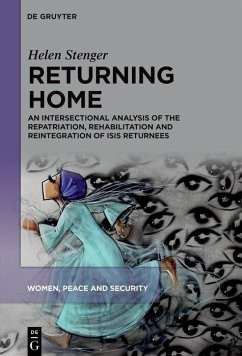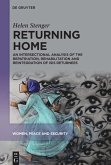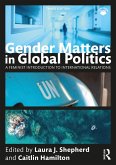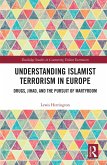Most existing rehabilitation and reintegration programmes are gender-neutral; that is, they claim to be universal, and are not tailored specifically to male or female beneficiaries. Yet, typically, these programmes are influenced by implicit gender norms and assumptions, such as that men are violent perpetrators of aggression and women are victims who are peaceful and lack agency. Alongside gender norms, intersecting racial and religious dynamics also shape how governments handle the repatriation, rehabilitation and reintegration of ISIS returnees. This includes racial profiling, the conflation between Islam and extremism and more broadly the rising Islamophobia in many countries, particularly since the 'War on Terror'. These dynamics lead to an absence of rehabilitation and reintegration programmes specifically designed for women's diverse experiences, which is the subject of this book.
Returning Home examines state responses to repatriation, rehabilitation and reintegration of ISIS returnees from an intersectional perspective, with a focus on ISIS women returnees. This book addresses the biased understandings that are built into scholarship and policy responses that reinforce gendered and racialized inequalities. It outlines how these dynamics can be uncovered and redressed by designing policies that are responsive to gender differences, inequalities and harmful norms.
.
Dieser Download kann aus rechtlichen Gründen nur mit Rechnungsadresse in A, B, BG, CY, CZ, D, DK, EW, E, FIN, F, GR, HR, H, IRL, I, LT, L, LR, M, NL, PL, P, R, S, SLO, SK ausgeliefert werden.









